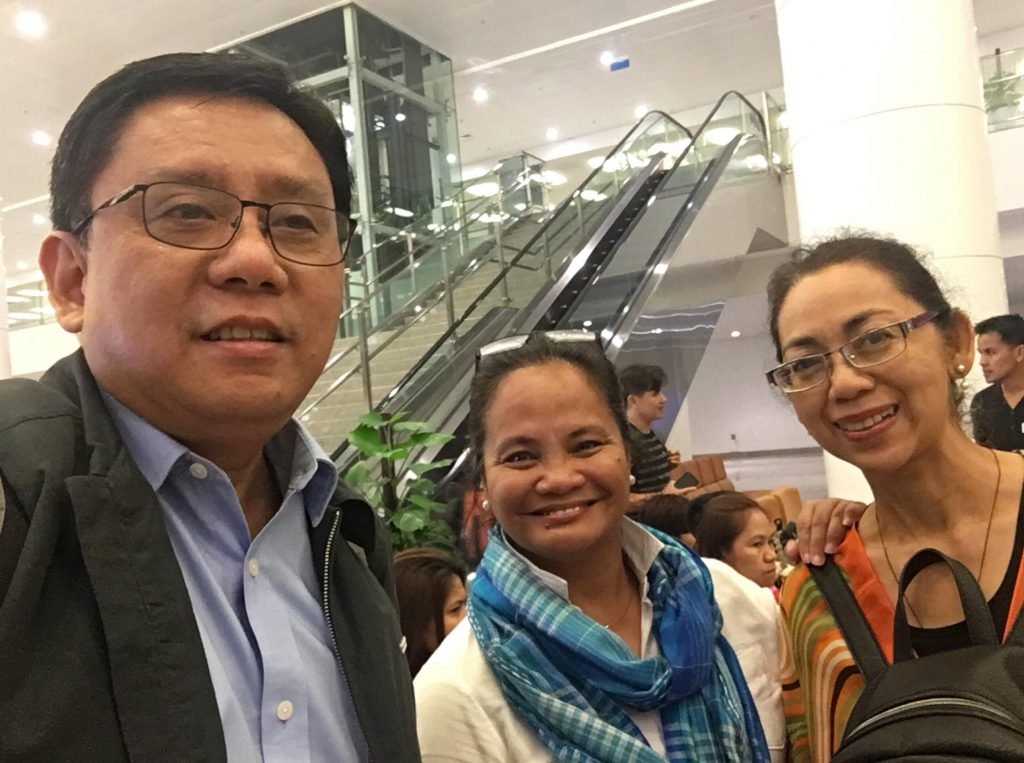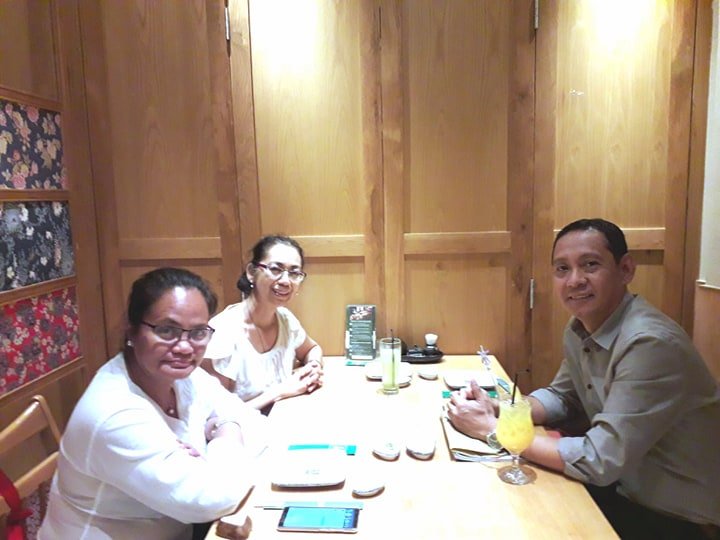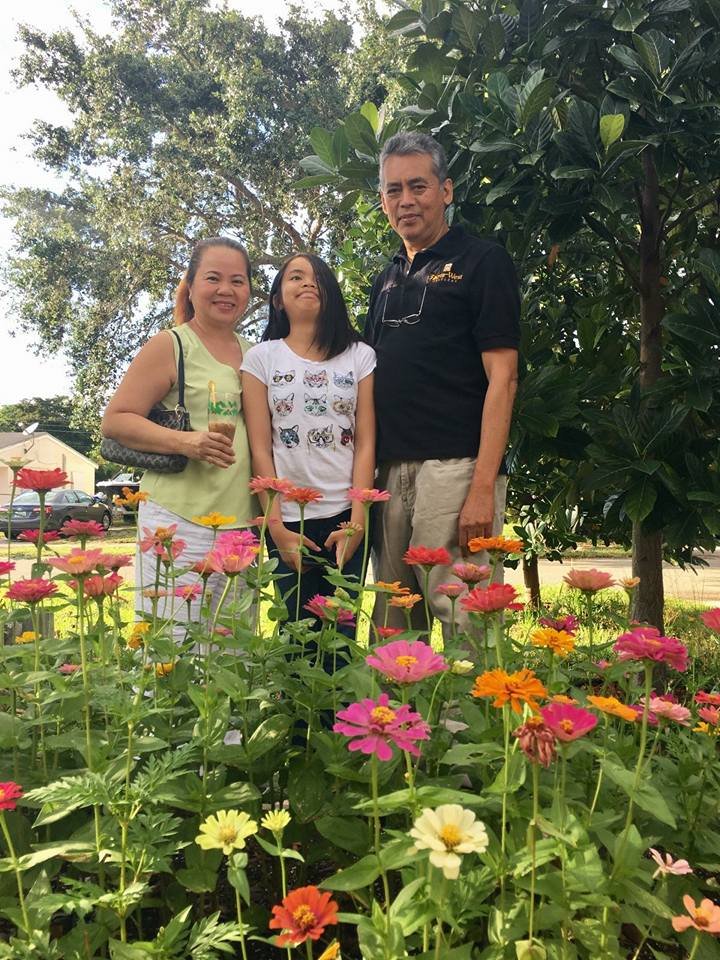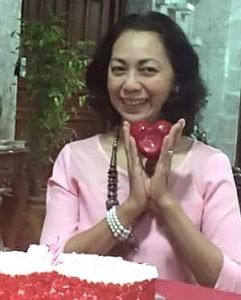At Hoi An, huddled on one of the tables, Aidine and I are slurping on our fruit shakes and I’m nibbling on my banh mi when a plaintive male voice soared over the din of the street crowd.

It was the full moon and the Lantern Festival and the crowd was unbelievable everywhere in the Old Town and the town proper. Aidine and I looked at each other and said, “That’s a Pinoy singing.” Our faces were smug as we said it. But, of course, the Pinoy singer is in demand abroad and it is not difficult to distinguish that particular talent from among the other voices.

As a Pinoy myself, I often look for connections with my countrymen abroad. It was an auspicious start to land in Vietnam via Hanoi and find out that Aidine and I were on the same flight as Philippine Ambassador to Vietnam the Hon. Noel Servigon who is a fellow Ilonggo. I would like to acknowledge his valuable contribution to the making of my articles on Vietnam. It was a pity that I never got the chance to visit the Philippine Embassy in Hanoi despite the fact that Aidine and I had strolled along Embassy Row. Of all times, on a holiday. Nonetheless, the good ambassador provided me with pertinent data. With 30 years in Foreign Service, Ambassador Servigon was posted in Hanoi in 2016. His previous assignments were to Vienna, Ankara, The Hague, Abu Dhabi, Manado (Indonesia) as head of mission (Consul General) and Hong Kong also as head of mission and Consul General. It was while he was in Hongkong when the Philippine Consulate General won the 2013 Gold Standard Award for Diplomatic Engagement given by Public Affairs Asia for the reason that the consulate achieved excellence in diplomacy by prioritizing “access to health and wellness programs, promoting a sense of community and belonging; and fulfilling every Filipino’s right to suffrage.” (Philippine Star, 8 Dec. 2013) . The Pinoys in Vietnam, clearly, are in good hands.

There are about 8,000 Filipinos working or doing business in this country. In Saigon, cousin Robert Magbanua’s former colleague Samuel Lagasca treated me and Aidine to a Japanese dinner at the chic Sushi Te where I was able to pick the brains of an OFW in VN. Sammy works for Obayashi Vietnam Corp. as a manager of the company’s Mechanical and Electrical Department. He said that Pinoys in Vietnam work in their respective professional fields unlike in Hongkong or Singapore where teachers find jobs as domestic helpers. This was confirmed by embassy data that says that “a majority of the Filipinos in VN hold mid-level to high-level positions in multinational and local companies related to construction and infrastructure, and in the food and hotel industries.” At Halong Bay, I met four young ladies working as English teachers in English academies. “There is a growing number of Filipino teachers in Vietnam. Most of them are connected with English-language centers and international schools. There are also Filipino doctors and nurses usually catering to the medical needs of foreigners in the country.” Also, Philippine companies invest in manufacturing in the food and beverage industries with Filipino managers and executives.

There are even Filipino priests in Vietnam. I haven’t met one there but I met a Vietnamese priest at the 1923 Sacred Heart of Jesus Church a.k.a. Church of the Rooster or Pink Church in Danang. We approached Fr. Peter Tran Duc Cuong after mass and when we introduced ourselves as coming from the Philippines, the good padre let out a sigh and excitedly told us that he had spent 4 years in our country. He used to live along Tandang Sora, Q.C. Tandang-tanda niya pa! He has very fond memories of the Philippines. It is a pity that we couldn’t stay longer to continue our conversation. He made for very delightful and pleasant company.

Conversely, my cousin Robert who worked in VN from 1995 to 2001. He moved to California, but came back to Saigon in 2003 until 2006 where he also worked in Hanoi with Sammy. He was reluctant to leave, actually. As his sister says, “Manoy adored VN so much that he brought VN to Florida. He never gets tired of his Vietnamese garden; if you get the chance to see it, you’ll see that he never left his fave country.” He loves Vietnam so much that he even got himself a Vietnamese wife. Here is what he messaged me:
“Looking back I think [what] I missed most about VN is the smell. I used to wake up early and walk around downtown area near Dong Koi Street just before the cathedral before the shops open so I can watch those [Vietnamese] before starting their businesses. Our work starts at 7AM and we have Japanese exercise at 6:30 so nice to walk before 6. At 6 we have breakfast. Saigon at that time looked so old no buildings higher than 3 storeys tall. First project is now called Legend Hotel (5-star), near the Saigon River. Did you try balut with “rau ram” or drink “rau ma” or eat sour soup with “ngo om”? Those bring me back to the early days. The smell of incense sticks along the people’s houses that are as thin as the occupants themselves. That’s Vietnam to me.”


